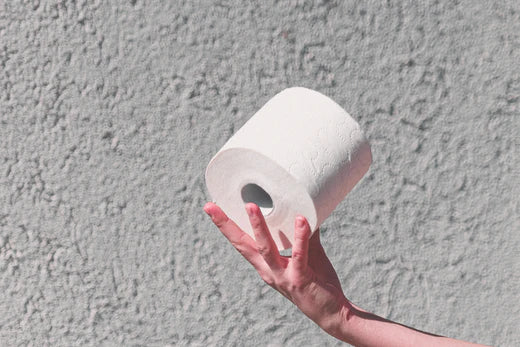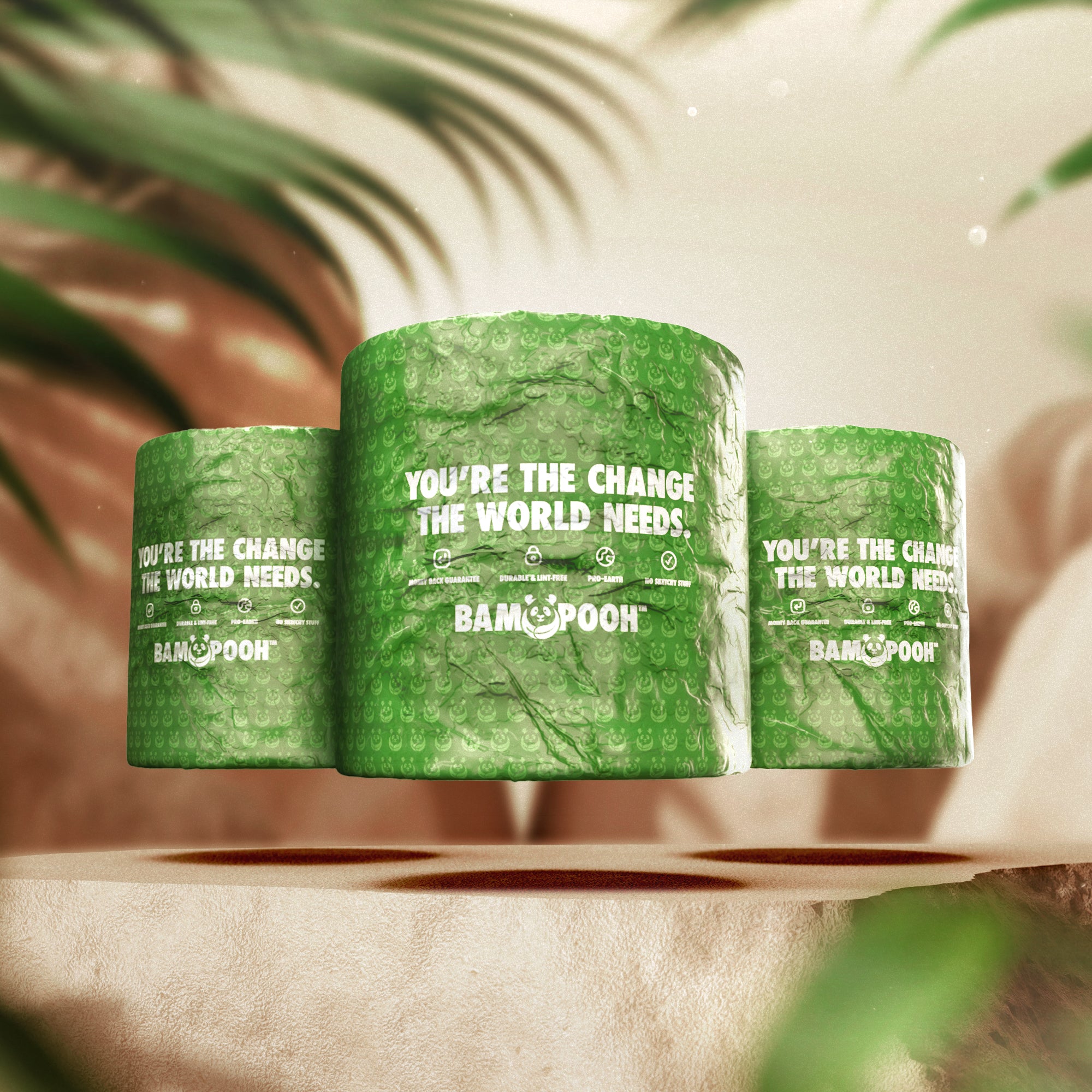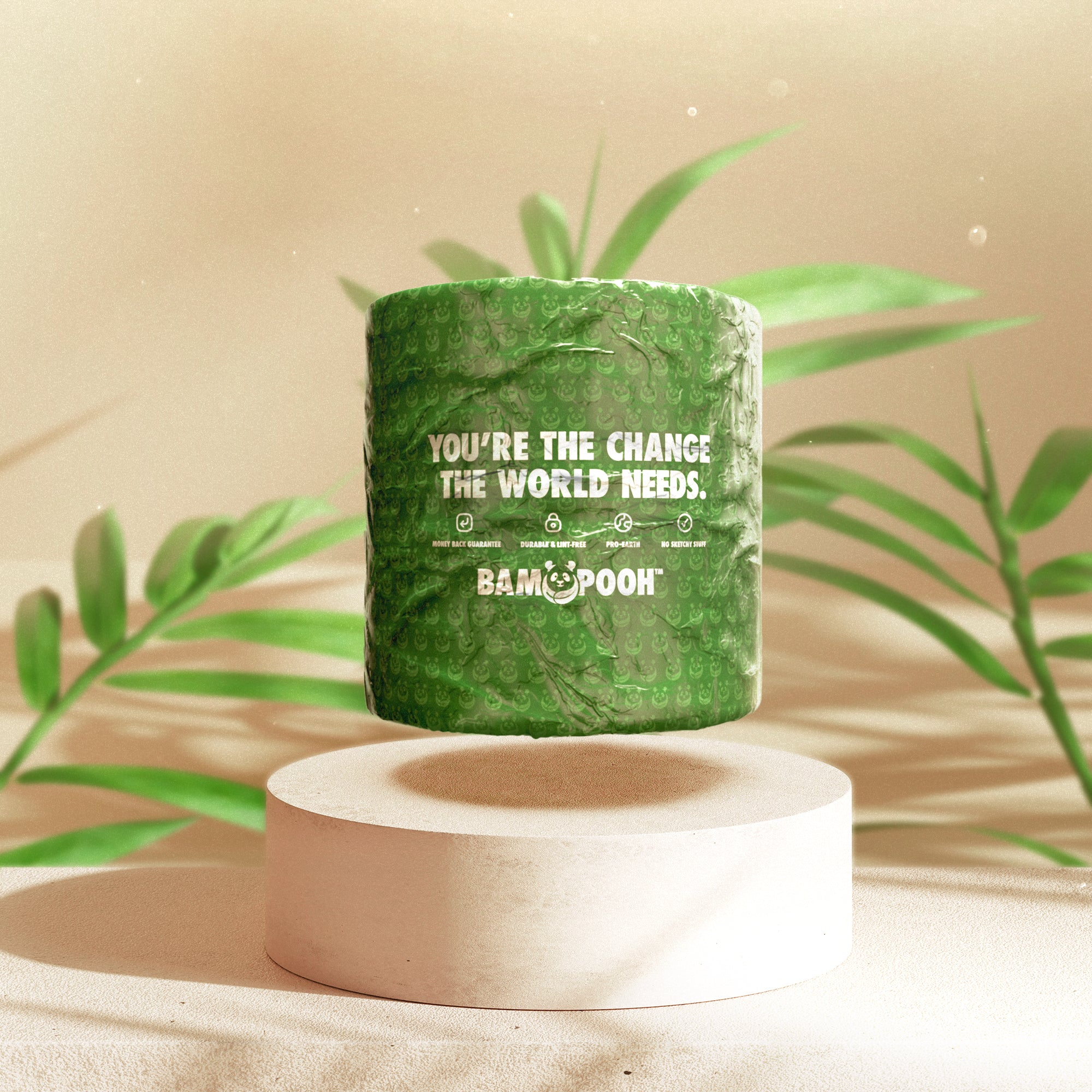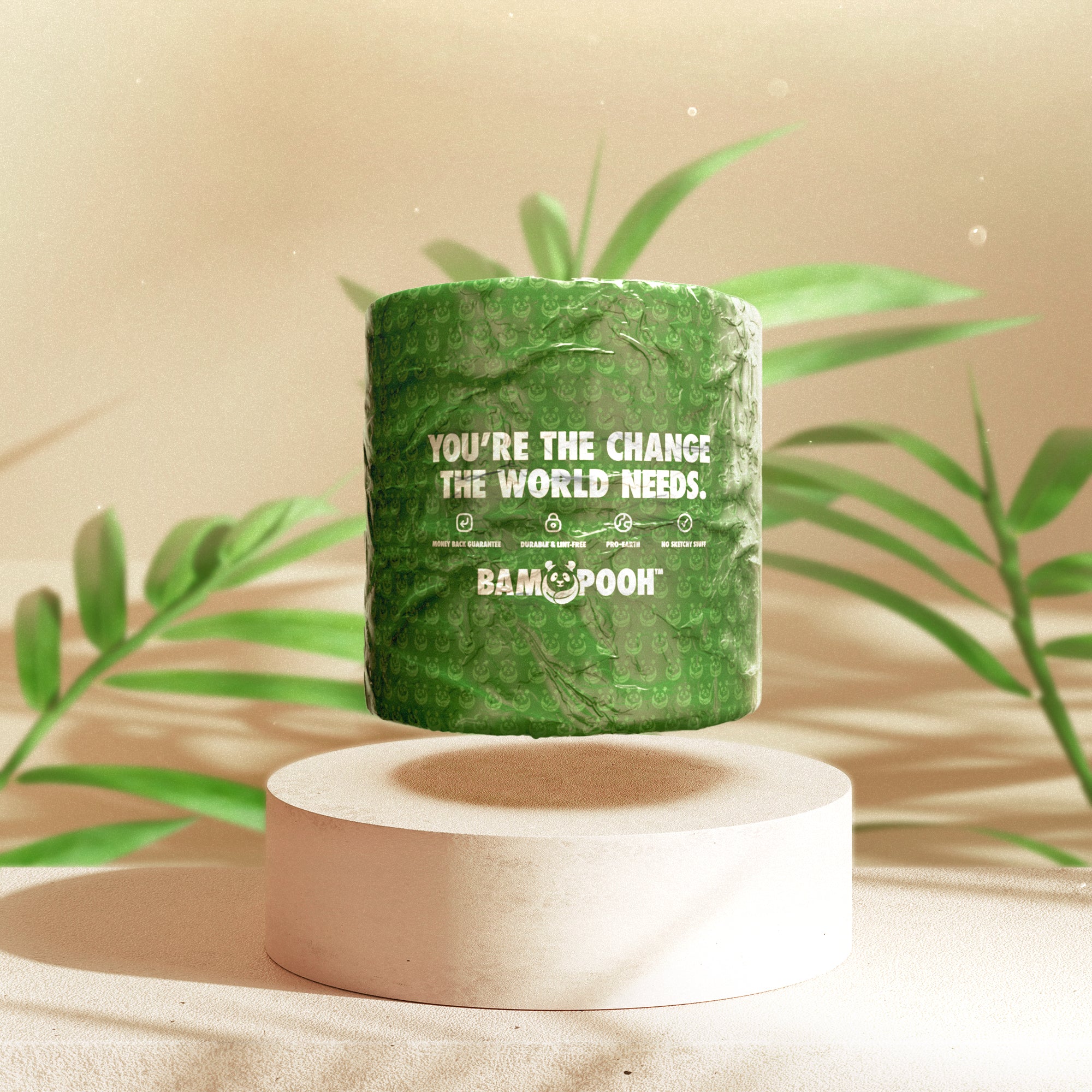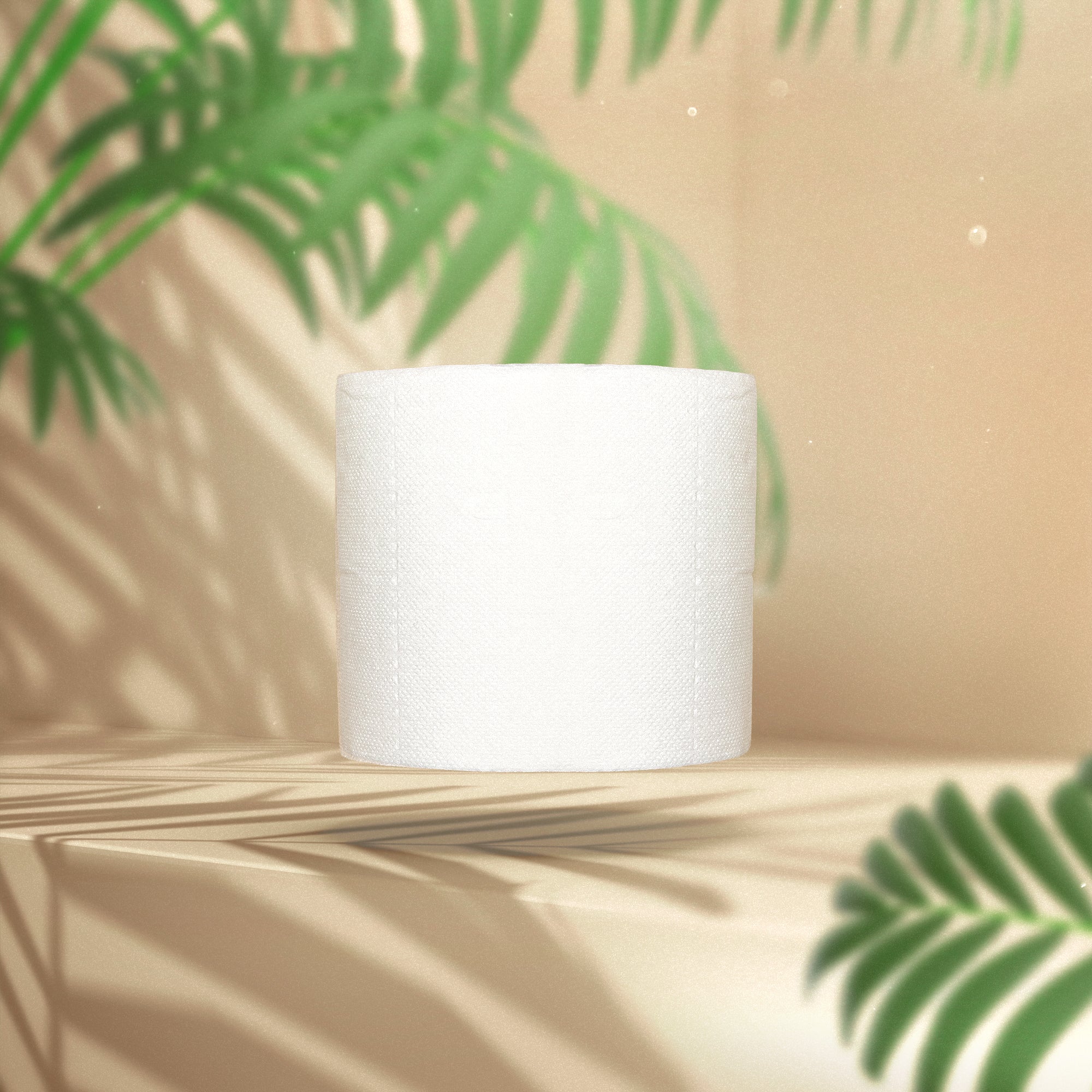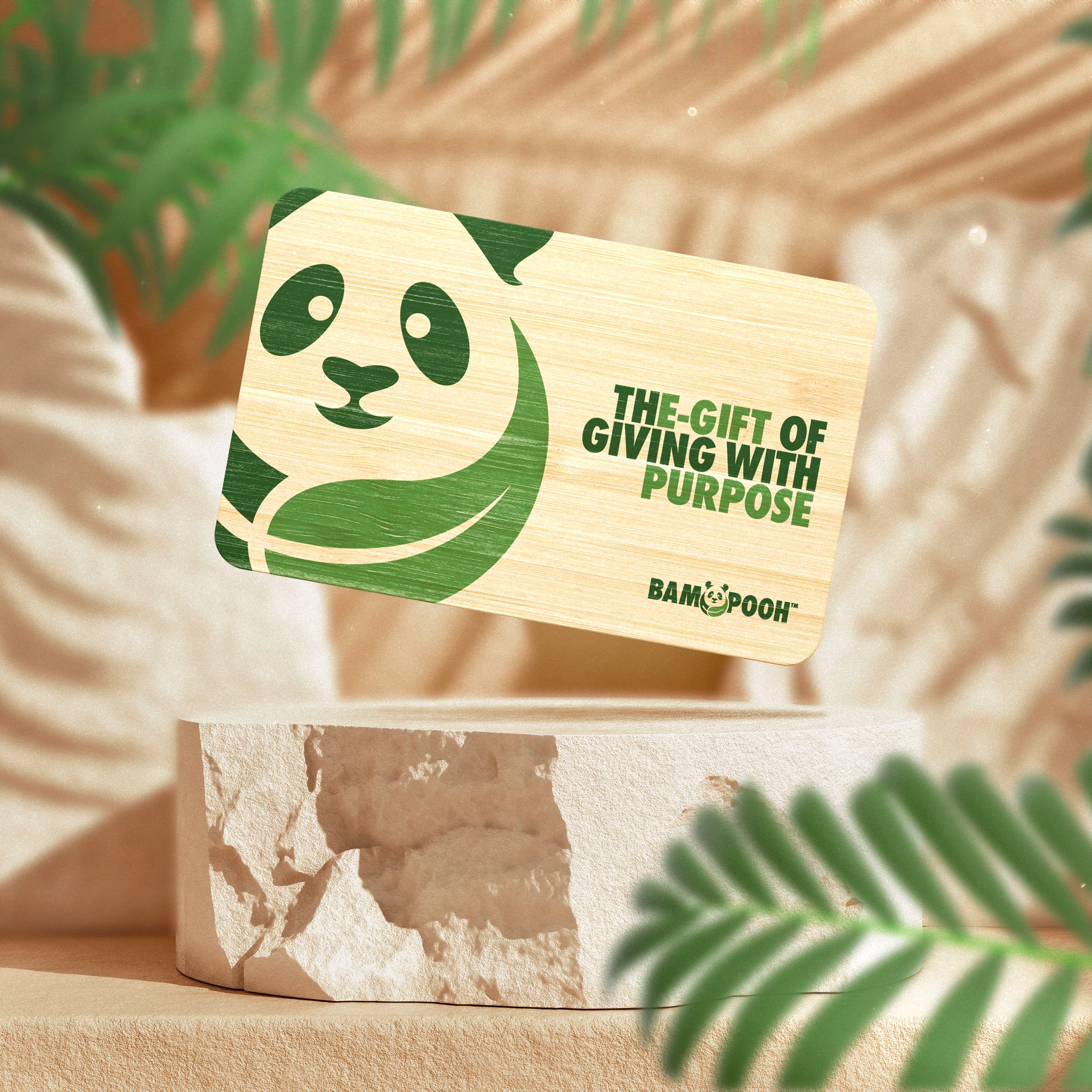In a world that is becoming increasingly aware of environmental challenges, the products we use daily are being scrutinized more than ever. Among these, the humble roll of toilet paper has emerged as a surprising but impactful topic of discussion. With deforestation, water scarcity, and harmful chemicals being tied to traditional toilet paper production, consumers are now looking for more sustainable alternatives. Enter bamboo toilet paper—a product that’s changing the game for personal hygiene while helping to preserve the planet.
At the forefront of this bamboo revolution is Bampooh, a brand committed to sustainability, quality, and transparency. In this blog, we’ll explore why bamboo toilet paper is becoming so popular and why Bampooh’s bamboo toilet paper should be your go-to choice.
1. The Environmental Crisis of Traditional Toilet Paper
Before understanding why bamboo toilet paper is gaining popularity, it’s important to acknowledge the environmental issues tied to traditional, tree-made toilet paper.
Deforestation
Every day, millions of trees are cut down to meet the global demand for toilet paper. The numbers are staggering: it’s estimated that approximately 27,000 trees are felled daily just to make toilet paper. This massive deforestation not only disrupts ecosystems but also contributes to climate change. Trees act as carbon sinks, absorbing CO2 from the atmosphere. Removing them exacerbates global warming and reduces biodiversity.
Water and Chemical Usage
Traditional toilet paper production requires immense amounts of water and harsh chemicals. Chlorine, used to bleach toilet paper to its familiar white color, produces harmful byproducts like dioxins. These chemicals are toxic to both humans and wildlife, seeping into water supplies and causing long-term damage.
Landfill Waste
Tree-based toilet paper often ends up in landfills, where it contributes to methane emissions as it decomposes. While toilet paper itself is biodegradable, the environmental toll of its production far outweighs its convenience.
2. What Makes Bamboo a Sustainable Alternative?
Bamboo toilet paper is rising in popularity because it offers a solution to the environmental issues caused by traditional toilet paper production. Here’s why bamboo is a sustainable game-changer:
Rapid Growth and Renewability
Bamboo isn’t a tree—it’s a type of grass. This distinction is key because bamboo grows incredibly fast, with some species growing up to 35 inches in a single day. Unlike trees, which can take decades to mature, bamboo can be harvested within 3-5 years. Better yet, harvesting bamboo doesn’t kill the plant; it regenerates naturally, making it a truly renewable resource.
Minimal Resource Requirements
Bamboo requires far less water to grow than trees and doesn’t need harmful pesticides or fertilizers. Its natural resilience makes it an eco-friendly crop that’s easy to cultivate sustainably.
Carbon Sequestration
Bamboo absorbs more CO2 and produces more oxygen than an equivalent stand of trees, making it a powerful tool in combating climate change. By choosing bamboo products like Bampooh’s toilet paper, you’re supporting a resource that actively helps reduce greenhouse gases.
3. Why Bamboo Toilet Paper is Non-Toxic and Safer
A major reason for the popularity of bamboo toilet paper is its non-toxic nature. Traditional toilet paper often contains chlorine, fragrances, dyes, and other chemicals that can irritate sensitive skin and harm the environment. Bamboo toilet paper, on the other hand, is naturally hypoallergenic and chemical-free.
No Chlorine or Harsh Chemicals
Bampooh’s bamboo toilet paper is processed without elemental chlorine, opting for an Elemental Chlorine-Free (ECF) bleaching method. This ensures the paper is clean and white without producing harmful dioxins. Unlike traditional toilet paper, which can release toxins into waterways, bamboo toilet paper remains environmentally safe throughout its lifecycle.
Hypoallergenic and Skin-Friendly
Bamboo fibers are naturally smooth and gentle, making them ideal for people with sensitive skin. Bampooh’s toilet paper is free from added fragrances and dyes, offering a clean, irritation-free experience. For families with young children or individuals with allergies, bamboo toilet paper is a safer and more comfortable choice.
4. The Superior Quality of Bamboo Toilet Paper
While environmental benefits often take center stage, bamboo toilet paper also stands out for its quality and performance. Bampooh’s bamboo toilet paper offers an unparalleled combination of softness, strength, and absorbency.
Soft Yet Durable
Many people mistakenly believe that eco-friendly products sacrifice quality, but Bampooh’s bamboo toilet paper proves otherwise. Bamboo fibers create a luxuriously soft texture that rivals or even surpasses premium traditional toilet paper brands. At the same time, bamboo’s natural strength ensures that the paper doesn’t tear or break easily.
Highly Absorbent
Bamboo toilet paper is highly absorbent, meaning you’ll use fewer sheets per use. This not only reduces waste but also makes each roll last longer, offering better value for money.
5. Why Choose Bampooh for Your Bamboo Toilet Paper?
Bampooh has emerged as a leader in the bamboo toilet paper market, thanks to its commitment to sustainability, quality, and transparency. Here’s what sets Bampooh apart:
FSC Certification
Bampooh’s bamboo toilet paper is Forest Stewardship Council (FSC) certified, meaning it comes from responsibly managed bamboo forests. This certification ensures that the bamboo is harvested in a way that protects ecosystems and respects the rights of workers and local communities.
Carbon-Neutral Shipping
Bampooh goes the extra mile by offering carbon-neutral shipping. By offsetting the carbon emissions generated during transportation, Bampooh ensures that its products have a minimal environmental footprint from production to delivery.
Recyclable Packaging
Unlike many traditional toilet paper brands that use plastic packaging, Bampooh packages its rolls in recyclable materials. This commitment to reducing plastic waste aligns with the brand’s broader sustainability mission.
6. Bamboo Toilet Paper’s Role in a Sustainable Lifestyle
Switching to bamboo toilet paper isn’t just about making a better choice for your bathroom—it’s about embracing a sustainable lifestyle. Small changes, like opting for Bampooh’s bamboo toilet paper, can have a ripple effect on your overall environmental impact.
Reducing Waste
With its biodegradable composition and recyclable packaging, bamboo toilet paper reduces waste at every stage of its lifecycle. By choosing bamboo over tree-made toilet paper, you’re helping to divert waste from landfills and reduce pollution.
Supporting Green Initiatives
Every purchase of Bampooh’s bamboo toilet paper supports a brand dedicated to environmental stewardship. By voting with your wallet, you’re encouraging the growth of sustainable industries and the development of eco-friendly products.
Leading by Example
Making sustainable choices, even small ones like switching to bamboo toilet paper, sets an example for others. By sharing your commitment to eco-friendly products, you can inspire friends, family, and colleagues to consider their own environmental impact.
7. Addressing Common Concerns About Bamboo Toilet Paper
As with any emerging product, there are common questions and misconceptions about bamboo toilet paper. Let’s address some of these concerns:
Is Bamboo Toilet Paper Expensive?
While bamboo toilet paper may have a slightly higher upfront cost than some traditional options, its durability and absorbency mean that you use less per roll, making it cost-effective in the long run. Additionally, the environmental benefits far outweigh the minor price difference.
Does Bamboo Toilet Paper Clog Toilets?
Bamboo toilet paper breaks down easily in water, making it safe for all plumbing systems, including septic tanks. Bampooh’s bamboo toilet paper is specifically designed to dissolve quickly, ensuring it won’t cause clogs or backups.
What About the Impact on Pandas?
The bamboo used in Bampooh’s toilet paper is not the same species that pandas eat. Rest assured, choosing bamboo toilet paper does not impact panda habitats or their food supply.
8. How to Make the Switch to Bamboo Toilet Paper (Approx. 400 words)
Transitioning to bamboo toilet paper is simple and rewarding. Here are a few tips to help you make the switch:
- Start Small: Purchase a pack of Bampooh’s bamboo toilet paper and try it out. Notice the difference in quality, comfort, and environmental impact.
- Educate Your Household: Explain to your family members or roommates why you’re making the switch and the benefits of using bamboo toilet paper. Education helps create shared accountability.
- Subscribe for Convenience: Many brands, including Bampooh, offer subscription services that deliver bamboo toilet paper straight to your door. This ensures you never run out while reducing trips to the store.
- Pair With Other Eco-Friendly Choices: Consider using bamboo paper towels or other sustainable products to further reduce your environmental footprint.
Conclusion: Bamboo Toilet Paper as the Future of Sustainability (Approx. 200 words)
Bamboo toilet paper is more than just a trend; it’s a movement towards a healthier planet and a more sustainable future. By addressing the environmental, health, and performance drawbacks of traditional toilet paper, bamboo toilet paper offers a superior alternative that aligns with the values of modern, eco-conscious consumers.
Bampooh stands out as a leader in this space, offering high-quality, sustainable, and non-toxic bamboo toilet paper that delivers on its promises. With FSC certification, carbon-neutral shipping, and recyclable packaging, Bampooh goes above and beyond to ensure its products are as kind to the Earth as they are to you.
The growing popularity of bamboo toilet paper signals a shift in consumer priorities. As more people embrace sustainable alternatives, we move closer to a future where everyday essentials no longer come at the expense of our environment. Make the switch to Bampooh today and join the bamboo revolution—because every roll counts.



